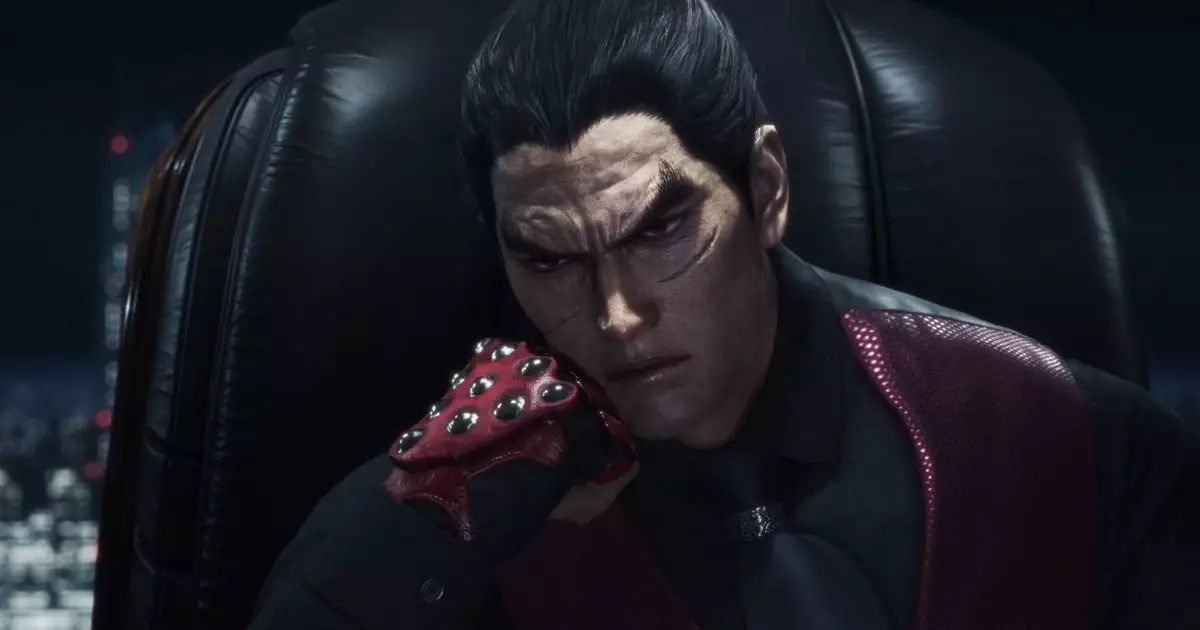The world of game development is often glamorized as a bustling hive of creativity and innovation, yet beneath its vibrant surface lies an undercurrent of immense pressure and stress. Katsuhiro Harada, the illustrious director of the beloved Tekken series, recently opened up about the toll that such pressures have taken on him during the production of Tekken 4. When Harada recalled the turbulent experience of launching the game in 2001, it became evident that the stakes weren’t just professional; they seeped into his personal well-being. The game’s lukewarm reception unsettled him, coinciding with a period of profound stress within Bandai Namco, which ultimately spiraled into a striking psychological and physical reaction for the director.
The rarity of Harada’s phenomenon, wherein he faced hair loss solely on one side of his body due to stress, underscores the idiosyncratic ways that anxiety can manifest. Stress-related conditions, such as alopecia areata, provide a window into understanding how extraordinary stressors can wreak havoc on the body. Harada’s experience was a stark reminder of the impact high-stakes environments can have on health, revealing the hidden sacrifices behind successful franchises like Tekken.
The Weight of Expectations
Harada’s revelations extend beyond mere anecdote; they reveal the crippling weight that expectations place on creators. In an industry where success and acclaim are often hard to achieve, the feedback ecosystem can be merciless. The praise Harada received in hindsight for Tekken 4 was a stark contrast to the barrage of criticism he faced during the game’s initial release. His admission that he felt utterly isolated during this time speaks volumes about the sometimes lonely journey of game development. The overwhelming sense of having “not a single ally” in the face of public scrutiny can trigger feelings of self-doubt and burnout, resonating with many creators who often feel the burden of a fluctuating relationship with their audiences.
Furthermore, Harada’s powerful assertion that the current accolades for Tekken 4 are driven by nostalgia highlights a common phenomenon in creative industries. Time can soften past criticisms, revealing the layers of artistic merit that may not have been apparent upon first impression. Such dynamics challenge developers to remain resilient and to trust in their visions, despite immediate criticism.
Resilience Amid Realities
On a more positive note, Harada’s journey emphasizes resilience. After navigating through the murky waters of game development and its accompanying fallout, he emerged stronger and wiser. His temporary departure from the company following an intense year of stress and what he dubbed “shock” serves as a pivotal moment in his career. Frequently, conversations around mental health in the workforce highlight the need for boundaries, self-care, and support systems. Harada’s candid account is a call to action for the industry, urging companies to foster environments that prioritize the mental well-being of their teams.
Despite the tumultuous experiences surrounding Tekken 4, Harada remains an enduring figure in the gaming community, currently directing the latest installment, Tekken 8. His continued involvement serves as a testament to the rewarding aspects of creative endeavors. The fact that he sought to incorporate Colonel Sanders from KFC into a fighting game shows his playful spirit and innovative thinking, characteristics that reflect his complexities as a creator.
The Evolution of Public Perception
As Tekken 8 approaches a new generation of players, one can’t help but ponder the evolution of public perception surrounding gaming titles. Harada’s experience with Tekken 4 offers insight into how time can alter narratives. Two decades later, we see that many developers and fans have a penchant for nostalgic acceptance, often overlooking previous critiques in favor of celebration. This tendency raises questions about how we engage with art forms as they mature and the expectations we place on their creators.
One striking takeaway from Harada’s wisdom is the importance of reflection. For him, Tekken 4 is not merely a failed project but a valuable lesson—an opportunity for growth and learning. Each installment of Tekken adds to a rich history that challenges players and creators alike, transforming their experiences. As Harada admits, whether seen as a ‘masterpiece’ or a misstep, the game remains pivotal in shaping his narrative, embodying the essence of both struggle and triumph in the face of adversity in the gaming landscape.


Leave a Reply